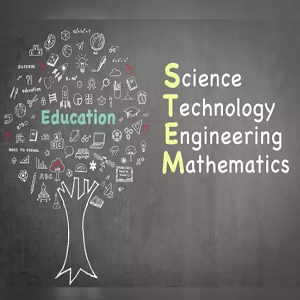How STEM Programs are Reshaping Higher Education
 According to Alison Barrett, the Director for India at the British Council, Indian students in the UK tend to choose Science, Technology, Engineering and Maths (STEM) courses, sustainability studies, and the creative industry over the conventional business courses. In 2022, more than 126,000 students from India were hosted in the UK, as reported by the Higher Education Statistics Agency.
According to Alison Barrett, the Director for India at the British Council, Indian students in the UK tend to choose Science, Technology, Engineering and Maths (STEM) courses, sustainability studies, and the creative industry over the conventional business courses. In 2022, more than 126,000 students from India were hosted in the UK, as reported by the Higher Education Statistics Agency.
Speaking to Economic Times on the sidelines of the recent India-UK Higher Education Conference, Barrett said, “We’ve seen a shift in recent times. Typically, business courses were very popular. We’re seeing a shift towards STEM courses. Computer science, AI, sustainability, and the creative industry are other courses attracting students from India.”
STEM education extends beyond traditional academic subjects and instead provides individuals with a set of skills that have a profound impact on their thinking and behaviour. STEM education plays a crucial role in tackling the present global challenges by integrating science, technology, engineering, and mathematics.
Currently, the STEM fields comprise some of the most rapidly expanding and lucrative careers. Although some professions such as computer support specialists or web developers may not necessitate a college degree, the majority of jobs in the fields of science, technology, engineering, and mathematics (STEM) typically require at least a bachelor's degree or higher. It is a positive thing to note that high school students do not have to wait until college in order to pursue STEM subjects.
Participating in consistent educational activities both at home and in school enables numerous young individuals to explore and uncover their interest in STEM disciplines. Engaging in activities like reading, outdoor play, or taking care of a plant can help develop a strong interest in gardening, mechanics, ecology, and other related fields. Furthermore, implementing a STEM-focused syllabus that actively engages students with disabilities can create opportunities for prosperous careers in these rapidly growing fields.
Developing STEM professionals: who can make a difference?
Those who choose to pursue STEM education develop a diverse set of skills that enhance their chances of finding employment and being well-prepared to meet the demands of available job positions. STEM covers a broad range of abilities and knowledge, with each aspect making a valuable contribution to a holistic education. Science furnishes students with a deep comprehension of the world and cultivates their research and analytical abilities. Technology equips young individuals with the necessary skills and knowledge to thrive in a technologically advanced workplace. Engineering allows students to enhance their problem-solving skills and apply their knowledge to novel endeavors. Mathematics provides individuals with the ability to examine data, rectify mistakes, and make well-informed choices while formulating solutions. STEM education combines these fields harmoniously to create a unified system, cultivating skilled individuals capable of inventiveness and discovering viable solutions to revolutionize society.
NR Narayana Murthy, the founder of Infosys, suggested that India should allocate $1 billion annually towards the development of educational institutions and the enhancement of training programs for teachers.
Speaking at the Infosys Science Foundation (ISF) event to announce the 2023 winners of the Infosys Prize, Narayan Murthy said: “One possible way of accelerating NEP’s outcome is to invite 10,000 retired highly accomplished teachers from the developed worlds and from India in science, technology, engineering and mathematics (STEM) to create 2,500 ‘train the teacher’ colleges across India.”
STEM Professionals earn higher-than-average pay
Attractive salaries often accompany STEM occupations due to the high demand. Top engineering school graduates frequently receive attractive initial salaries. In addition, experienced professionals in areas such as big data analytics, logistics, and computer science witness substantial rises in their salaries as they enhance their expertise.
Harvard, without a doubt, is the most highly desired university in the United States. It holds a prominent position in STEM fields, particularly in Biological Sciences, Computer Science, Chemistry, Physics, and Mathematics.
STEM experts are in immediate demand
Businesses, irrespective of their size, are on the lookout for skilled experts who can develop software applications and manage the growing amount of data generated by the growing adoption of the Internet of Things (IoT). eBay, IBM, and Disney actively seek individuals who hold computer science degrees and possess specialized expertise in cloud computing. Skilled professionals are in demand not only within the IT industry but also in fields such as engineering, software development, and the natural sciences. Students are equipped for roles like cloud architects and engineers through classroom teaching, research, and internships.
Boosts soft skills
Graduates with a STEM degree have the ability to apply the skills they have acquired in a wide range of industries, allowing them to have flexibility in their career choices. STEM degrees do not restrict career paths; instead, they provide access to a wide range of possibilities. For example, a mathematics degree can open up opportunities for employment in the fields of architecture and city planning due to its relevance in these areas. In addition to developing technical abilities, a STEM education fosters the growth of creative, curious, and analytic minds capable of pursuing their goals in any field.
The programs in Chemical Engineering, Civil Engineering, Chemistry, Physics, Mathematics, and Biological Sciences at Stanford are in high demand.
A STEM career offers greater job security
Professionals in STEM fields have lower unemployment rates as their expertise is in high demand, even though no job can be completely secure. Obtaining job security can help ease worries about taking out student loans to pursue a bachelor's or master's degree. The majority of students who hold STEM degrees find job placements right after completing their studies.
The California Institute of Technology, located in Pasadena, is renowned as one of the most esteemed institutions specializing in the disciplines of science, technology, engineering, and mathematics (STEM).
STEM education boosts critical thinking abilities
STEM education improves students' capacity for critical thinking. With these subjects being comprehensible worldwide, teams from all over the world can cooperate in addressing intricate issues utilizing mathematics, physics, and programming. Curiosity and problem-solving skills are essential for achieving success in any field, including but not limited to STEM. In particular, in STEM disciplines that are constantly evolving, students must be open to difficult assignments and come up with innovative solutions. These experiences foster the development of essential critical thinking abilities necessary for both personal and professional aspects of life.

